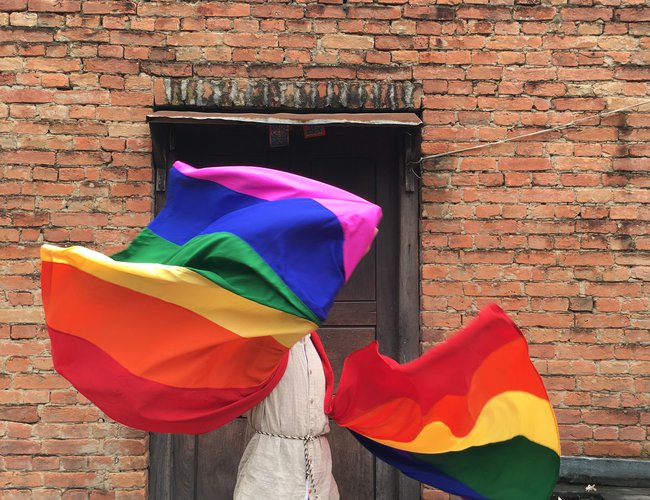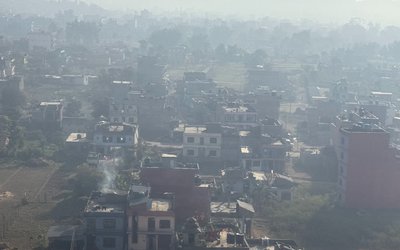
"So, do you think you will ever 'go back' to being straight?" LGBTQI++ individuals encounter this question as a micro-aggressionregularly; even if it’s an outcome of an almost everyday curiosity. It gives the impression of being, to some extenta kind of phase or choice. For the questioned individual, this line of questioning can be dismissive of who they truly are, thereby reinforcing the damaging notion that their sexual orientation or gender identity can never be embraced. Such subtle questioning creates the environment in which LGBTQI++ individuals are required to provide a justification for their identity, making it all the more difficult to relax andopenlyembrace their identity.
Micro-aggressions;those subtle, even unintended, slights or discriminations, has made a huge difference in the lives of LGBTQI++ individuals as everyday reminders of the pervasiveness of bias embedded in our society. Even if these acts seem to outsiders’ inconsequential, the accumulation of such can maintain self-concepts, perpetuate stereotypes and uphold systems of inequality. From governmental agency practices to interpersonal relationships, the micro-aggressions directed to LGBTQI++ persons betray a lack of understanding and inclusivity that urgently needs attention.
For many LGBTQI++ individuals, the challenges begin with institutional neglect. Say, for an example, women, children and senior citizens have dedicated government ministries with common representation, however the LGBTQI++ communities have been continuously excluded from such representation or inclusion. By its very nature, this absence invariably leaves them without a clear platform on which to address circle-specific problems.
Media is one of the strongest vehicles in the construction of public opinion. So, without talking about the interests of the LGBTQI++ communities the media cannot avoid shifting values. There is little formal training on sexual orientation or gender identity among many journalists, thus, there are reports, inaccuracies, sensationalism and their use of incorrect pronouns. Coverage has tended to portray the advocacy for LGBTQI++ people as an imported ‘modern Western trend’, dismissing historical, culturally rich perspectives on diverse gender and sexual identities as mentioned in historical books of the subcontinent. Such portrayals completely misinform by promoting cultural social misconceptions, treating LGBTQI++ visible social existence as a direct affront to traditional values.
Micro-aggressions also arise within normal conversations and cultural narratives. Then, the LGBTQI++ identities are commonly dismissed as ‘bad influences' or those which seek attention, relegating the movement's quest for equal rights to triviality. Statements may range from, "Who is the ‘man’ in the relationship?" to, "Why do they need to parade?" Such comments express deeply ingrained heteronormativity within society.
Micro-aggressions perpetrated against individual members of LGBTQI++ are generally severe, manifesting as increased anxiety, depression and feelings of alienation. These may appear as minor transgressions, such as the misuse of gender pronouns or an assertion that an LGBTQI++ identity represents a trend; however, they slowly erode one's self-esteem and sense of acceptance into the fold. In general, micro-aggressions act to preserve structural inequalities, hindering the privilege and opportunity and reinforcing social and economic disparities. Failure to acknowledge such subtle forms of discrimination enacts the fallacy of prejudice and creates an environment of marginalization instead of inclusion. Micro-aggressions should not only be confronted but also corrected; positively, they present an ideal opportunity to reform cultural notions of respect and understanding. The key to disarming these damaging biases lies in educating, representing and standing in solidarity with them so as to build a community that affirms the dignity and rights of every individual.
There needs to be a collective response to these challenges. The governments should take up inclusive policies and give representation to the LGBTQI++ communities so that their voices can be heard in decision-making. Media organizations need to draft code of conduct for accurate and respectful reporting, as well as dealing with sensitivity training in workplaces and schools to fight ignorance. At a more macro level, confronting cultural myths with local LGBTQI++ narratives should address the stereotype that LGBTQI++ identities are ‘alien’ or ‘modern’.
Finally, micro-aggressions are not simply smaller acts of prejudice; they are symptomatic of systemic inequality that must be addressed. Through the promotion of awareness, allyshipand strength to the voices of LGBTQI++, society may start implementing significant measures to incorporate all. Every effort to confront the quieter and pernicious forms of discrimination paving way for a more inclusive worldin which everyone is valued and respected for who they are on this planet earth.
(Kharel is the host and producer of Global Perspectives and Inspiring Women talk shows.)
- Strengthening the Engagement of Men and Boys in the Fight for Gender Equality
- May 18, 2025
- When Skies Turn Gray: Kathmandu’s Struggle for Breathable Air
- Apr 16, 2025
- Nepal's Minister for Foreign Affairs highlights LGBTQIA+ achievements at a global forum
- Jan 06, 2025
- Nepal Makes History with First Female Chief Secretary and Shortest Tenure
- Aug 18, 2024
- Navigating the Climate Crisis: Harnessing Indigenous solutions for a sustainable future
- Aug 04, 2024















